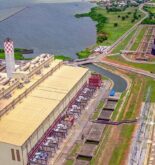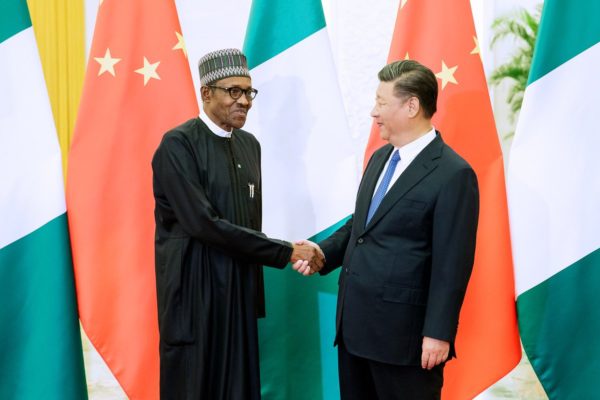There appears to be no end in sight to the lingering crisis between the Federal Government and the electricity distributors who bought some of the assets of the successive companies of the defunct Power Holding Companies of Nigeria (PHCN)
The parties in crisis are embroiled in the propriety and legality to comment on the issues in the nation’s power sector which stakeholders said is very critical in turning the nation’s economy around.
Already, stakeholders in the sector have continually expressed worries over the recurring war of words between the government and the power distributors in the country, saying the development may not give Nigerians the requisite dividend of the privatisation of the power assets.
The Minister of Power, Babatunde Fashola and Association of Nigerian Electricity Distributors (ANED) have been at loggerheads over the state of electricity in the country.
ANED Executive Director, Sunday Oduntan, had accused the minister of lying on his claims of improved power generation.
He spoke at a press conference in Lagos recently, where he accused the Power Minister of ordering him out of a stakeholder meeting on the basis that he didn’t invite ANED, which is an umbrella body of distribution companies to the gathering.
Fashola had responded by saying he does not recognise Oduntan or ANED because the association is not a licensee in the sector.
Last week, Nigerian Electricity Regulatory Commission (NERC) has warned the Association of Nigerian Electricity Distributors (ANED) to steer clear of policy directives in the power sector.
The commission made the directive during a meeting with representatives of electricity distribution companies (DisCos) in Abuja.
At the meeting, ANED representatives were warned against commenting on any pronouncement made by Babatunde Fashola, minister of power, James Momoh, NERC chairman, or the commissioners.
The communique read: “Inter-relationships between Electricity Distribution Companies were encouraged but activities of Association of Nigerian Electricity Distributors were discouraged. A strict adherence to contract agreement signed by the Commission’s Licensees (Discos) was re-echoed as the only binding legal entity that should form the continued relationship between the Commission and Electricity Distribution Companies.
“The meeting agreed henceforth the Legal Counsel of the Electricity Distribution Companies representing ANED should never in whatsoever way interfere with the policy directives or regulatory pronouncements made either by the Honorable Minister of Power or the Commission, that no unwarranted remark should be made by ANED representatives against the person of the Honorable Minister, NERC Chairman or against any of the NERC Commissioner going forward.”
But the Association of Nigerian Electricity Distributors (ANED) says the constitution empowers it to protect the interest of electricity distribution companies (DisCos).
Azu Obiaya, Chief Executive Officer of ANED, said the association will not fold its arms when its members are endangered.
He said contrary to the directive of the Nigerian Electricity Regulatory Commission (NERC), ANED’s opposition to a policy or regulation should not be construed as interference.
Obiaya acknowledged that the association is not a licensee in the electricity sector, but said: “Section 40 of the 1999 Constitution of the Federal Republic of Nigeria (as amended) provides the right of association, in pursuit of a common interest.
The DisCos, with their formation of, and membership of ANED, are exercising this right, no different from similar entities along the Nigerian Electricity Supply Industry (NESI) value chain, such as the Association of Power Generating Companies, Nigerian Gas Association, National Union of Electricity Employees.
“ANED represents the DisCos with a principal mandate of advocacy, to protect the interests of its member companies directly and, indirectly, the incomes of a 22,000-employee workforce; the investors who have sunk more than $1.4 billion in the acquisition and operations of the DisCos to date; and our customers who seek to enjoy the benefits of the best practices that result from the interaction of our members under the ANED umbrella.
“Rather, the bigger and more pressing issue for us is the widening tariff gap that precludes our members’ ability to meet the obligations of their Performance Agreements, that is a result of factors such as the freezing of the residential class of tariffs (R2) in 2015, for eighteen months; removal of collection losses, again in 2015; non-implementation of five Minor Reviews; N435.7 billion of sculpting or under-recovery of revenue; the non-recovery of required revenue under MYTO-2015, for January 2016; non-implementation of MYTO-2015 February 2018 adjustments, all of which are regulatory responsibilities.”
Comrade Chris Chukwu, President of Senior Staff Electricity and Allied Companies (SSEAC) told Daily Independent that the association of the power companies are not licensees and does not have the right to comment on some power policy thrust in the country.
He said the association has proven in recent time that it is a serious hindrance to the growth and development of the power sector with its action and inaction.
‘’It is very sad that ANED constitutes a serious problem to the nation’s power sector by blackmailing the Ministry of Power and Nigerian Electricity Regulatory Commission (NERC) with a view to cover their tracks for lack of performance and inability to give Nigerians the dividends of power privatization’’
He advised the Federal Government to be wary of the antics of the association and vigorously pursue the act that can fasten the growth of the nation’s power sector.
Chinedu Bosah, the coordinator, Coalition for Affordable and Regular Electricity (CARE), said there was nothing wrong for the association to speak with one voice especially on issues that affect their business and the power sector.
He, however, said the association does not have the right to undermine the interest of mass of Nigerians by denying them the service they labored to pay for.
He punctured the NERC for not doing enough to size up the exploitative tendencies of the power distribution companies in Nigeria.
To him, the war of attribution between the parties in dispute was not particularly to cater for the need of Nigerian consumers, but merely to win sympathy to their side.
A legal practitioner, Bode Okusanya, was of the opinion that since ANED was not the entity that bought the assets, it has limited propriety to vent opinion on the policy thrust of the power sector.
Sulaiman Hassan, a university don, told our correspondent while the two parties have their strong and weak points on the propriety to vent opinion on the policy thrust of the power sector, the two parties should close ranks and explore ways to improve power supply with a view to adding value to Nigerians and boosting the country’s industrialization.






